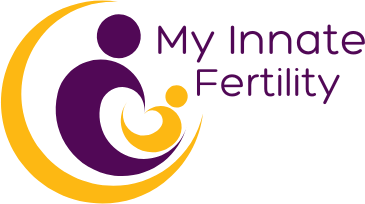Understanding the Relationship Between Lifestyle and Menstrual Health
Menstrual health is a crucial aspect of a woman’s overall well-being. It not only impacts fertility and reproductive health but also serves as an important indicator of overall health. Understanding the relationship between lifestyle and menstrual health is essential for women. You can do this by taking proactive steps in maintaining optimal well-being.
The menstrual cycle, which typically lasts about 28 days, is regulated by complex hormonal interactions within the body. Various lifestyle factors can influence this delicate balance. These potentially affect the regularity and quality of the menstrual cycle.
Factors such as stress, diet, nutrition, exercise, sleep, and exposure to toxins all can influence menstrual health. By examining these lifestyle factors closely, we can gain valuable insights into how they impact fertility.
In this section, we will explore the different ways in which lifestyle choices can affect menstrual health. We will look at the scientific research behind these connections. We will also discuss practical tips for promoting optimal menstrual health through lifestyle modifications.
By understanding the relationship between lifestyle and menstrual health women are empowered to make informed decisions for their overall well-being. Let’s look at this journey into the intricate interplay between lifestyle factors and menstrual health.
The Role of Diet in Influencing Menstrual Health and Fertility
A healthy diet that includes a variety of nutrient-rich foods can positively impact menstrual health. Consuming foods rich in iron, such as leafy green vegetables and lean meats, can help prevent iron deficiency anemia, which is often associated with heavy or irregular periods. Omega-3 fatty acids found in fatty fish like salmon or flaxseeds can help reduce inflammation and support hormonal balance.
When it comes to fertility, certain nutrients are particularly important. Folate is crucial for the development of a healthy baby and can be found in foods like spinach, citrus fruits, and liver. Antioxidant-rich foods like berries and nuts may also improve fertility by protecting eggs from damage caused by free radicals.
On the other hand, excessive sugar intake has been linked to negative effects on menstrual health. High sugar consumption can lead to insulin resistance and hormonal imbalances that may disrupt regular menstrual cycles.
The Importance of Exercise for Maintaining a Healthy Menstrual Cycle
Regular physical activity has been shown to have positive effects on menstrual health. Engaging in exercise helps to regulate hormone levels, reduce stress, and improve blood circulation, all of which contribute to a healthy menstrual cycle. Additionally, exercise can help manage symptoms associated with menstruation such as cramps and mood swings.
When it comes to fertility, physical activity can have a direct impact. Studies have shown that women who engage in regular moderate-intensity exercise are more likely to conceive compared to those who are sedentary. Exercise helps maintain a healthy body weight, improves insulin sensitivity, and enhances reproductive hormone balance – all factors that can boost fertility.
While any form of exercise is beneficial for overall health, certain exercises are particularly beneficial for menstrual health. Low-impact activities like walking, swimming, yoga, and cycling are gentle on the body while still providing cardiovascular benefits and promoting hormonal balance.
For women trying to conceive or maintain optimal menstrual health, it is important to follow some exercise guidelines. It is recommended to engage in at least 150 minutes of moderate-intensity aerobic activity per week or 75 minutes of vigorous-intensity aerobic activity along with strength training exercises twice a week.
It’s important to note that excessive exercise or intense training can have negative effects on the menstrual cycle and fertility. Overtraining may lead to irregular periods or even amenorrhea (absence of menstruation). Therefore, finding the right balance between enough physical activity and avoiding excessive strain is crucial for maintaining a healthy menstrual cycle.
The Effects of Stress on Menstruation and Fertility
Stress can have a significant impact on the menstrual cycle and fertility in women. When experiencing high levels of stress, it is not uncommon for women to experience irregularities in their menstrual cycles. This can manifest as missed periods, longer or shorter cycles, or changes in the intensity of menstrual symptoms.
Furthermore, stress can also affect fertility by disrupting hormonal balance. Stress hormones such as cortisol can interfere with the production and regulation of reproductive hormones like estrogen and progesterone. This disruption can lead to difficulties in conceiving and maintaining a pregnancy.
Managing stress is crucial for improving both menstrual cycle regularity and fertility. There are various stress management techniques that women can incorporate into their daily lives to promote hormonal balance and enhance their chances of conception. These techniques include mindfulness practices such as meditation, deep breathing exercises, yoga, and relaxation techniques.
By engaging in these stress management practices regularly, women can reduce the impact of stress on their menstrual cycle and fertility. It is important to prioritize self-care and create a supportive environment that promotes emotional well-being when trying to conceive or regulate one’s menstrual cycle.
Sleep Habits and Their Influence on Menstrual Health and Fertility
Getting sufficient sleep is crucial for maintaining hormonal balance and supporting overall menstrual health and fertility. Sleep disturbances can have a significant impact on ovulation and menstruation, leading to irregular cycles, hormonal imbalances, and even fertility issues.
Research has shown that inadequate sleep or disrupted sleep patterns can disrupt the delicate hormonal balance in the body. This can affect the release of hormones necessary for regular ovulation and menstruation. In particular, lack of sleep can lead to an increase in stress hormones such as cortisol, which can interfere with the normal functioning of reproductive hormones.
To improve sleep hygiene during the menstrual cycle, there are several tips that can be followed. Firstly, establishing a consistent sleep schedule by going to bed and waking up at the same time every day helps regulate your body’s internal clock. Creating a relaxing bedtime routine, such as taking a warm bath or practicing relaxation techniques like deep breathing or meditation, can also promote better sleep.
Additionally, it is important to create a conducive sleep environment by keeping your bedroom dark, quiet, and cool. Avoiding stimulants like caffeine or nicotine close to bedtime is advised as they can interfere with falling asleep easily.
Environmental Factors that can Disrupt Hormonal Balance in Women
In today’s modern world, there are various environmental factors that can disrupt the delicate hormonal balance in women. These factors, known as endocrine disruptors, can have a significant impact on reproductive health and overall well-being. It is essential for women to be aware of these disruptors and take steps to minimize their exposure.
Many everyday products contain chemicals that can interfere with the normal functioning of hormones. These include personal care products, household cleaners, plastics, and pesticides. Chemicals such as phthalates, parabens, bisphenol A (BPA), and triclosan are commonly found in these products and have been linked to hormonal imbalances in women.
To maintain optimal fertility and reproductive health, it is crucial to avoid these harmful chemicals as much as possible. Opt for natural and organic alternatives when it comes to personal care products and household cleaners. Look for labels that indicate a product is free from phthalates, parabens, BPA, and other potential endocrine disruptors.
Creating an eco-friendly environment can also contribute to maintaining hormonal balance in women. This includes reducing the use of plastics by opting for glass or stainless steel containers for food storage and drinking water. Choosing organic produce whenever possible can help minimize exposure to pesticides.
The Phases of the Menstrual Cycle and Tracking Your Menstrual Cycle
In our previous blogs, we delved into the topic of understanding your menstrual cycle and how it plays a crucial role in fertility and conception. We discussed the importance of tracking your menstrual cycle and identifying fertile days. In this section, we will recap the key points discussed in two specific blogs: “The Phases of the Menstrual Cycle: From Day 1 to Ovulation” and “Tracking Your Menstrual Cycle: Tools and Methods to Identify Fertile Days.”
One effective method mentioned for tracking ovulation is through the use of ovulation predictor kits (OPKs). These kits detect the surge in luteinizing hormone (LH) that occurs before ovulation, helping you pinpoint your most fertile days. By following the instructions provided with OPKs, you can increase your chances of conceiving by timing intercourse during this fertile window.
Another method discussed was basal body temperature charting (BBT). This involves taking your temperature every morning before getting out of bed and recording it on a chart. The slight increase in basal body temperature after ovulation can indicate that you have already ovulated. By tracking these changes over several cycles, you can identify patterns in your cycle and determine when you are most likely to be fertile.
Cervical mucus monitoring was also highlighted as an essential tool for tracking fertility. Throughout your menstrual cycle, cervical mucus undergoes changes influenced by hormonal fluctuations. By observing changes in its consistency and appearance, you can identify when you are approaching or experiencing ovulation.
Understanding these methods – OPKs, BBT charting, and cervical mucus monitoring – empowers individuals who are trying to conceive by providing valuable insights into their menstrual cycle and identifying their most fertile days. By utilizing these tools effectively, couples can optimize their chances of successful conception.
Taking Control of Your Lifestyle to Improve Menstrual Health and Enhance Fertility
Key factors to consider include maintaining a balanced diet rich in essential nutrients, engaging in regular exercise to promote overall well-being, managing stress levels through relaxation techniques or therapy, getting enough quality sleep, and avoiding harmful substances such as tobacco and excessive alcohol consumption.
Additionally, it is crucial to track your menstrual cycle and become familiar with the signs of ovulation. This knowledge can help you identify the most fertile days for conception. There are various methods available for tracking ovulation, including using ovulation predictor kits or smartphone apps that monitor changes in basal body temperature or cervical mucus.
Furthermore, seeking professional guidance from healthcare providers, chiropractors or fertility coaches specializing in reproductive health can provide valuable insights tailored to your specific needs. They can offer personalized advice on optimizing fertility based on factors such as age, medical history, and individual circumstances.
By taking control of these lifestyle factors and seeking appropriate support when needed, you can empower yourself to improve menstrual health and enhance fertility. Remember that every person’s journey is unique, so be patient with yourself and trust the process. With determination and informed choices, you can pave the way towards a healthier reproductive future.
There are many next steps you can take to connect with My Innate Fertility. You can book a complimentary consultation call by visiting this link here! In this call you can ask any questions you have to see if fertility coaching is right for you. You can also access my FREE download on 5 Supplement Essentials to Getting Healthy here. These can help support you in your fertility goals.
Finally, I’d love to have you join my free Facebook Community with other women searching for fertility support. The support and information you will find there will be invaluable to your fertility journey.





